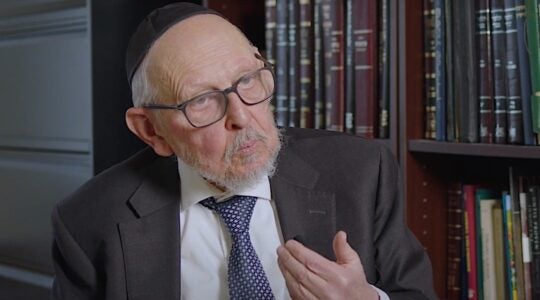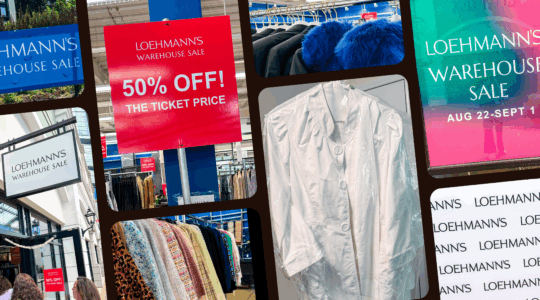In the past few years, it’s begun to creep into my conversations – along with talk of elementary schools and work-life balance and recommendations for excellent eye cream – this term, “sandwich generation.” It’s a useful turn of phrase to refer to those of us who feel squeezed between the simultaneous needs of our aging parents and our growing children. It doesn’t connote a positive squeeze like a hug; it’s really more of a strangle.
From my perch, as both a relatively recent arrival to my 40s and newly ascended to a professional leadership position as the executive director of the Jewish Women’s Archive (JWA), I’ve been thinking about how to reframe this in-between, sandwiched generational place. How can I make it less of a drag and more of an opportunity? As a feminist and Jewish communal professional who is committed to finding role models and identifying emerging leaders and trends, I’d like to think that my place in the middle offers a unique perspective on the past and on the present. Instead of feeling overwhelmed by my relationship to those generations that sandwich me, I’m trying to remember that I can benefit from both of them.
This effort at reframing isn’t just personal. I’m also bringing it to my work at the Jewish Women’s Archive. It helped sparked JWA’s latest online exhibit, Power Couples, which pairs the stories of trailblazing historical women with contemporary young women in the same fields. We created this project to offer an alternative to the conventional view of history, of the relationship between past and future, of generational relationships. Too often, history is seen as remote and dusty: nostalgic maybe, but not particularly relevant to the urgent work of daily life. And too often, generational differences are presented as insurmountable, beset by failures of communication and understanding.
As an historian, I have a different take on history and on the relationship between the past and our own lives. I believe history, if told well, can speak to us in vital tones and familiar language; it can engage us in conversation. After all, the stories that we know about our past shape our understanding of who we are, where we came from, what is possible. So what if we looked at the compelling stories of contemporary leaders within a historical frame – juxtapositions that are not designed to pit the present against the past but rather to look at them side by side, as pairs in dialogue, with something meaningful to say to one another?
JWA’s Power Couples exhibit helps build those bridges between the past and the unfolding future, generating a conversation that spans the generations. In some cases – like the “power couple” of Nora Ephron and Lena Dunham – we’ve picked up on mentorships that had already begun. In others – such as the pair of Ida Cohen Rosenthal, founder of Maidenform, and Sarah Blakely, founder of Spanx – we’ve given a young entrepreneur a previously unknown role model from whom she can learn and be inspired.
Even with all of the changes in women’s lives – and thankfully, there have been many – a continuity of questions, commitments, and challenges persists. Gertrude Elion couldn’t find a chemistry Ph.D. program that would accept her, whereas Nina Fefferman had earned a Ph.D. and was running her own lab by the time she was 30. But both had to work through what Fefferman terms the “toxic haze” of prejudices about women’s scientific abilities. In a completely different field, Iris Apfel and Leandra Medine, despite being separated by nearly 7 decades, both devote their lives to the question of how fashion – so often a force that constrains and regulates women – can be redefined as a mode of self-expression, creativity, confidence, and independence.
Now, I don’t mean to deny the squeeze my generation feels; in fact, I believe the challenge of balancing all of our responsibilities is one of the unfinished feminist issues of our time. But if we’re going to be in between, I figure we might as well draw as much learning and support and wisdom from this position as we can. If the sandwich is going to press in on us, it might as well nourish us, too.
Judith Rosenbaum, Ph.D., is the Executive Director of the Jewish Women’s Archive. She also serves on the faculty of the Hebrew College adult learning program and the Bronfman Youth Fellowships in Israel.
The New York Jewish Week brings you the stories behind the headlines, keeping you connected to Jewish life in New York. Help sustain the reporting you trust by donating today.





